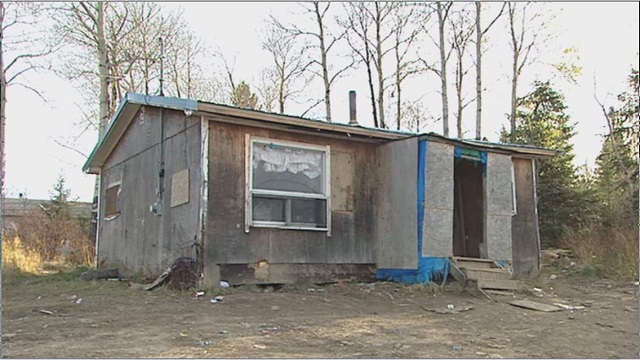Education
Learning at home? Here’s a list of links to take you on a “Virtual Field Trip”

Here’s an interesting list of Virtual Field Trips posted by a teacher from Ohio.
| San Diego Zoo | The San Diego Zoo has a website just for kids with amazing videos, activities, and games. Enjoy the tour! | ||
| Yellowstone National Park Virtual Field Trip | Mud Volcano, Mammoth Hot Springs, and so much more. | ||
| MARS!!! | Explore the surface of Mars on the Curiosity Rover.
They are updating from WEBVR to WEBXR now, but 360 Mode offers a digital view! |
||
| Animal Cameras | Live Cams at the San Diego Zoo
Monterey Bay Aquarium live cams Georgia Aquarium has Jellyfish, Beluga Whales, and more |
||
| Virtual Farm
Tour |
This Canadian site FarmFood 360 offers
11 Virtual Tours of farms from minks, pigs, and cows, to apples and eggs. |
||
| U.S. Space and Rocket Museum in Huntsville, AL | See the Saturn 5 Rocket on YouTube and more on this tour thanks to a real father/son outing. | ||
| Discovery Education Virtual Field Trips | A few of the field trip topics include | ||
| The Louvre | Travel to Paris, France to see amazing works of art at The Louvre with this virtual field trip. | ||
| The Great Wall of China | This Virtual Tour of the Great Wall of China is beautiful and makes history come to life. | ||
| Boston Children’s Museum | Walk through the Boston Children’s Museum thanks to Google Maps!
|
||
Have fun learning at home!
-Mrs. Fahrney
Red Deer
Expelled member of Red Deer Catholic School Board will have judicial reviews heard May 1-3

News release from The Democracy Fund
TDF and James Kitchen Defend School Board Trustee Monique LaGrange
Briefs were filed in Monique LaGrange’s case on the week of April 8, 2024.
RED DEER: The Democracy Fund (TDF) has partnered with lawyer James Kitchen to represent former school board trustee Monique LaGrange as she takes The Board of Trustees of Red Deer Catholic Separate School Division to court for kicking her off the Board because they took offence to one of Ms. LaGrange’s social media posts.
Mr. Kitchen filed two applications for judicial review in December 2023, challenging the Board’s decisions to penalize Mrs. LaGrange and disqualify her from sitting on the Board. Mr. Kitchen has now filed his briefs, which lay out in detail how the Board’s decisions are procedurally unfair and unreasonable and should be overturned by the Court of King’s Bench of Alberta.
The two judicial reviews will be heard virtually by a Red Deer judge over the course of a three-day hearing on May 1-3, 2024, starting at 2:00 PM on Wednesday, May 1. Members of the public are encouraged to attend by accessing this link.
In Alberta, judicial reviews are heard on the basis of a record of documents compiled and submitted to the Court by the decision-maker, which is supposed to include everything presented to the decision-maker at the time the decision was made. In this case, Mrs. LaGrange had submitted to the Board 33 pages of emails and letters from Albertans who supported her. At first, the Board failed to provide these supportive emails and letters to the Court, but that changed when Mr. Kitchen filed an application to compel the Board to do so. Redacted versions of these emails and letters, which are also quoted at length in the briefs, can be viewed here, starting at page 113 of 169.
Mrs. LaGrange was democratically elected to the Board in 2021. Despite this, the Board expelled her because she allegedly failed to comply with sanctions imposed on her by the Board in September 2023 for posting a meme to her Facebook account that some people found offensive. The impugned meme depicted two side-by-side photographs, one of children holding swastika flags and the other of children holding pride progress flags. The meme, which drew much support but also some disapprobation from the community, included a caption stating, “Brainwashing is brainwashing.”
The Board asked Mrs. LaGrange to apologize for the meme, which she declined to do because she believed she had done nothing wrong. In speaking to the Western Standard, Mrs. LaGrange stated, “I was elected to stand up and protect our children, and that is what I am doing.” Among other things, the Board, on September 26, 2023, ordered LaGrange to undergo sensitivity training at her own expense for allegedly breaching their code of conduct by posting the meme and to refrain from making public comments about sexual minorities in her official capacity as a Trustee.
The Board subsequently alleged Mrs. LaGrange had breached some of these sanctions and voted to disqualify Mrs. LaGrange as a trustee.
TDF and lawyer James Kitchen have chosen to defend Mrs. LaGrange to defend the free speech rights of all Canadians, especially in the context of statements made by democratically elected representatives.
To support Mrs. LaGrange, please consider making a tax-deductible donation on this page.
About The Democracy Fund:
Founded in 2021, The Democracy Fund (TDF) is a Canadian charity dedicated to constitutional rights, advancing education, and relieving poverty. TDF promotes constitutional rights through litigation and public education and supports access to justice initiatives for Canadians whose civil liberties have been infringed by government lockdowns and other public policy responses to the pandemic.
Education
Solar eclipse school closures underscore impact of learning loss

From the Fraser Institute
Instead of making every effort to protect instructional time and ensure that schools remain open, students are being sent home for ever more dubious reasons.
Schools are closed out of an “abundance of caution.” No doubt you’ve heard this phrase many times over the last few years. It was commonly used during the pandemic when provincial governments closed schools for months on end—even after it was widely known that COVID-19 posed little risk to most children.
Ontario schools were closed for 135 days during the pandemic, more than any other province. Parents and teachers are still trying to recover from this enormous learning loss. Clearly, this was one situation where an abundance of caution caused more harm than it prevented.
Sadly, it appears that provincial officials and school board administrators haven’t learned from their mistakes. Instead of making every effort to protect instructional time and ensure that schools remain open, students are being sent home for ever more dubious reasons.
For example, school boards across Ontario cancelled classes on April 8, the day of the solar eclipse. Apparently administrators felt there was too great a risk that students might look at the sun during the eclipse and damage their eyes. No doubt more than a few of them glanced at the sun while sitting at home that day. However, there was no need for the school closures to be as total as the eclipse. If they were really that concerned, school officials could have kept students indoors or simply altered the dismissal times.
Initially, the Waterloo Region District School Board (WRDSB) took a common sense approach by stating that schools would remain open and teachers would use the eclipse as a learning opportunity for students. Then, only days before the eclipse, the WRDSB suddenly reversed itself and said their schools would indeed close on April 8, and students would have the opportunity to engage in “asynchronous remote learning” instead.
This decision sent the unfortunate message that WRDSB trustees are incapable of standing up to pressure from people who think that schools must close at the slightest sign of real or presumed danger. As for the notion that remote learning was an adequate substitute, our experience during the pandemic showed that for most parents and students, remote learning was thin gruel indeed.
As a further sign of how far paranoia has crept into the education system, some teacher unions demanded they too should be able to work from home during the eclipse. For example, Jeff Sorensen, president of the Hamilton local teacher union, said, “If it’s not safe for children [to be at school], then it’s not safe for adults.”
The union representing Toronto’s Catholic teachers made a similar request. In a memo to its members, local union president Deborah Karam said the union was “intensifying our efforts” to ensure that teachers be allowed to complete their professional development activities at home that day. Surprisingly, no union leader has yet explained why teachers would be less likely to look at the sun while at home than at school.
Of course, school boards must focus on education while also looking out for the wellbeing of students. But there’s more to student wellbeing than simply shielding them from all perceived risks. Extended school closures cause considerable harm to students because they lead to significant learning loss.
By normalizing the practise of closing schools at the slightest sign of danger, real or perceived, we risk raising a generation of young people who lack the ability to do a proper risk assessment. Life itself comes with risk and if we all took the same approach to driving a car that school boards take to school closures, would never set foot in a vehicle again.
Ontario students had a once-in-a-lifetime opportunity to experience a solar eclipse in an educational environment, guided by their teachers. While some parents no doubt taught their children about the eclipse, many others had to be at work.
By closing schools out of an “abundance of caution,” school boards sent the message that school is not a place where unique educational events can be experienced together. Students should be in school during events such as the eclipse, not sitting at home.
If we’re going to exercise an abundance of caution, let’s be a lot more cautious about the risks of closing schools at the drop of a hat.
Author:
-

 Business2 days ago
Business2 days agoBusiness investment key to addressing Canada’s productivity crisis
-

 International2 days ago
International2 days agoBrussels NatCon conference will continue freely after court overturns police barricade
-

 Jordan Peterson2 days ago
Jordan Peterson2 days agoJordan Peterson slams CBC for only interviewing pro-LGBT doctors about UK report on child ‘sex changes’
-

 Business2 days ago
Business2 days agoFederal budget fails to ‘break the glass’ on Canada’s economic growth crisis
-

 Alberta1 day ago
Alberta1 day agoDanielle Smith warns arsonists who start wildfires in Alberta that they will be held accountable
-

 Addictions2 days ago
Addictions2 days agoLiberal MP blasts Trudeau-backed ‘safe supply’ drug programs, linking them to ‘chaos’ in cities
-

 Freedom Convoy2 days ago
Freedom Convoy2 days agoTrudeau’s use of Emergencies Act has cost taxpayers $73 million thus far
-

 Frontier Centre for Public Policy2 days ago
Frontier Centre for Public Policy2 days agoThe Smallwood solution







